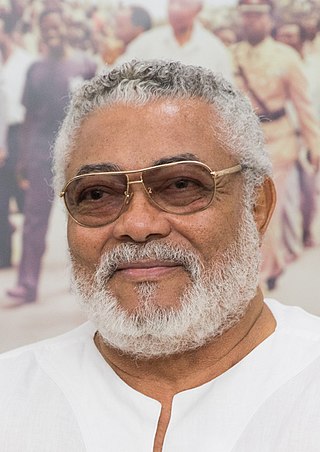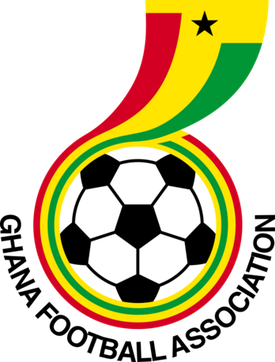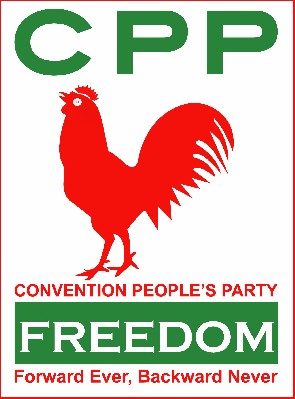Related Research Articles

Ghana, officially the Republic of Ghana, is a country in West Africa. It abuts the Gulf of Guinea and the Atlantic Ocean to the south, sharing borders with Ivory Coast in the west, Burkina Faso in the north, and Togo in the east. It covers an area of 238,535 km2 (92,099 sq mi), spanning biomes that range from coastal savannas to tropical rainforests. With over 32 million inhabitants, Ghana is the second-most populous country in West Africa, after Nigeria.

Jerry John Rawlings was a Ghanaian military officer and politician who led the country for a brief period in 1979, and then from 1981 to 2001. He led a military junta until 1992, and then served two terms as the democratically elected President of Ghana.

The cinema of Nigeria, often referred to informally as Nollywood, consists of films produced in Nigeria; its history dates back to as early as the late 19th century and into the colonial era in the early 20th century. The history and development of the Nigerian motion picture industry is sometimes generally classified in four main eras: the Colonial era, Golden Age era, Video film era and the emerging New Nigerian cinema era.

The Ghana national association football team represents Ghana in association football. Prior to 1957, it played as the Gold Coast.

The University of Ghana is a public university located in Accra, Ghana. It the oldest and largest of the thirteen Ghanaian national public universities.

The Convention People's Party (CPP) is a socialist political party in Ghana based on the ideas of the first President of Ghana, Kwame Nkrumah. The CPP was formed in June 1949 after Nkrumah broke away from the United Gold Coast Convention (UGCC).

The Union of African States, sometimes called the Ghana–Guinea–Mali Union, was a short-lived and loose regional organization formed in 1958 linking the West African nations of Ghana and Guinea as the Union of Independent African States. Mali joined in 1961. It disbanded in 1963.
Articles related to Ghana include:

The National Liberation Council (NLC) led the Ghanaian government from 24 February 1966 to 1 October 1969. The body emerged from a coup d'état against the Nkrumah government carried out jointly by the Ghana Police Service and Ghana Armed Forces with collaboration from the Ghana Civil Service.

The Daily Graphic is a Ghanaian state-owned daily newspaper published in Accra, Ghana.

The mass media in Ghana, includes television, radio, internet publishing and newspapers.

The Constitution of Ghana is the supreme law of the Republic of Ghana. It was approved on 28 April 1992 through a national referendum after 92% support. It defines the fundamental political principles, establishing the structure, procedures, powers and duties of the government, structure of the judiciary and legislature, and spells out the fundamental rights and duties of citizens. It is made up of 26 chapters, not including the preamble.
The Ghana Bar Association (GBA) is a professional association of lawyers in Ghana, including what used to be called solicitors and barristers but are now called legal practitioners, as well as magistrates. By convention all lawyers admitted to practice in Ghana become automatic members of the association. The GBA has its roots in the Gold Coast Bar Association, the first president of which was Sierra Leonean lawyer Francis (Frans) Dove.

Ghanaian nationality law is regulated by the Constitution of Ghana, as amended; the Ghana Citizenship Act, and its revisions; and various international agreements to which the country is a signatory. These laws determine who is, or is eligible to be, a national of Ghana. The legal means to acquire nationality, formal legal membership in a nation, differ from the domestic relationship of rights and obligations between a national and the nation, known as citizenship. Nationality describes the relationship of an individual to the state under international law, whereas citizenship is the domestic relationship of an individual within the nation. Ghanaian nationality is typically obtained under the principle of jus sanguinis, born to parents with Ghanaian nationality. It can be granted to persons with an affiliation to the country, or to a permanent resident who has lived in the country for a given period of time through naturalization.

The Ghanaian people are a nation originating in the Ghanaian Gold Coast. Ghanaians predominantly inhabit the Republic of Ghana and are the predominant cultural group and residents of Ghana, numbering 30 million people as of 2020, making up 85% of the population. The word "Ghana" means "warrior king". An estimated diaspora population of 4 million people worldwide are of Ghanaian descent. The term ethnic Ghanaian may also be used in some contexts to refer to a group of related ethnic groups native to the Gold Coast.

Kwesi Armah was a Ghanaian politician and diplomat. He was the High Commissioner (Ambassador) to the Court of St. James in London, England, and the Minister of Foreign Trade in the administration of Kwame Nkrumah before the military coup of 1966. He later served in the Council of State in the government of John Kufuor.

Elizabeth II was Queen of Ghana from 1957 to 1960, when Ghana was an independent sovereign state and a constitutional monarchy. She was also queen of the United Kingdom and other sovereign states. Her constitutional roles in Ghana were delegated to the governor-general of Ghana.
The following is a timeline of the history of the city of Accra, Ghana.
Joseph Henry Allassani was a Ghanaian teacher and politician. He was a member of parliament and a minister of state during the first republic. He was the first health minister in the first republic of Ghana.
Eric Kwame Heymann was a Ghanaian journalist and politician. He was the first Editor-in-chief of the Accra Evening News. He also served as the Chairman of the Association of Ghana Journalists and Writers. From 1965 to 1966, he was the member of parliament for the Buem constituency.
References
- ↑ "About Us", The Ghanaian Times. The New Times Corporation, n.d. Web. 28 Aug. 2012. "About Us | the Ghanaian Times". Archived from the original on 2012-09-19. Retrieved 2012-08-28..
- ↑ Daniel Miles McFarland, Historical Dictionary of Ghana, 1985, p. 90.
- ↑ Kuehnhenrich, Daniel (2012). Entwicklung oder Profit? Die staatliche und private Presse in Ghana. ibidem. ISBN 978-3-8382-0304-1 (online)
- ↑ "history". www.ghanaiantimes.com.gh. ghanaiantimes. Archived from the original on 10 February 2015. Retrieved 12 February 2015.